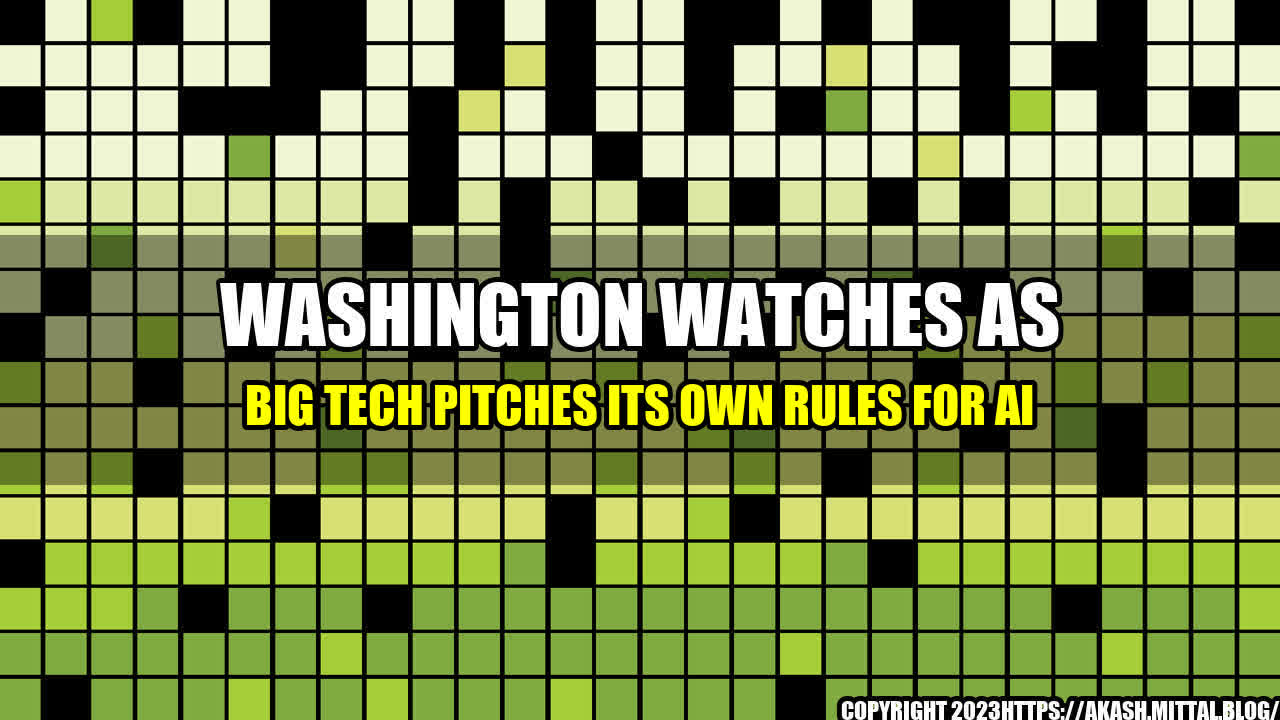In a world where artificial intelligence (AI) is rapidly advancing and changing the way we live and work, there is a growing need for regulation to ensure it is used ethically and responsibly. The question of who should regulate AI and how it should be regulated is a complex and contentious one, with big tech companies currently at the forefront of the debate.
Recently, tech giants such as Google, Microsoft, and Amazon have been putting forth their own proposals for regulating AI, drawing criticism and skepticism from some lawmakers and advocacy groups. However, these companies argue that they are best positioned to set the rules for AI, as they are the ones developing and implementing the technology.
The need for regulation
The need for regulation of AI is becoming increasingly urgent as the technology advances and becomes more widely used. AI has the potential to revolutionize industries from healthcare to finance, but it also poses significant risks if not properly regulated.
One of the biggest concerns with AI is its potential for bias and discrimination. AI algorithms are only as objective as the data they are trained on, and if that data contains biases or discrimination, the AI will learn and perpetuate those biases. This could have serious consequences in areas such as employment, lending, and criminal justice.
Another concern with AI is its potential for misuse and abuse. As AI becomes more powerful, there is a risk that it could be used for nefarious purposes such as cyberattacks or autonomous weapons. Additionally, AI has the potential to displace workers and further exacerbate income inequality if not properly managed.
Big Tech's role in regulation
Given these risks, there is a growing call for regulation of AI. However, the question of who should regulate AI and how it should be regulated is a matter of debate. Some argue that the government should take the lead in regulating AI, while others argue that big tech companies should be the ones to set the rules.
Big tech companies argue that they are best positioned to set the rules for regulating AI, as they are the ones developing and implementing the technology. These companies have a deep understanding of the technology and its potential risks and benefits, and they argue that they have a stake in ensuring that it is used ethically and responsibly.
However, critics argue that allowing big tech companies to regulate AI creates a conflict of interest, as these companies have a financial incentive to prioritize innovation and profit over safety and ethics. Additionally, some argue that big tech companies are not accountable to the public in the same way that government regulators are, and that they may not have the public's best interests in mind.
Examples of Big Tech's AI regulation proposals
Despite the criticisms, big tech companies are forging ahead with their own proposals for regulating AI. Below are some examples of these proposals:
- Google: Google's AI principles emphasize the importance of fairness, privacy, accountability, and transparency in the development and use of AI. The company has also proposed a set of ethical guidelines for the use of AI in facial recognition technology.
- Microsoft: Microsoft's AI principles focus on transparency, accountability, and non-discrimination. The company has also proposed a framework for the responsible use of facial recognition technology.
- Amazon: Amazon's AI principles prioritize fairness, transparency, accountability, and explainability. The company has also proposed a set of guidelines for the development and use of autonomous vehicles.
Conclusion
The regulation of AI is a complex and contentious issue, with big tech companies currently at the forefront of the debate. While these companies argue that they are best positioned to set the rules for AI, many critics have raised concerns about conflicts of interest and lack of public accountability. Ultimately, the regulation of AI will require a collaborative effort between big tech companies, government regulators, and civil society to ensure that it is used ethically and responsibly for the benefit of all.
In conclusion, the regulation of AI is a critical issue with far-reaching implications for society. It is essential that we work together to ensure that AI is developed and used in a way that is fair, transparent, accountable, and ethical.

Curated by Team Akash.Mittal.Blog
Share on Twitter Share on LinkedIn